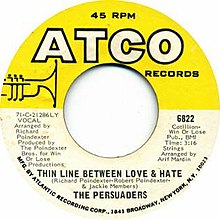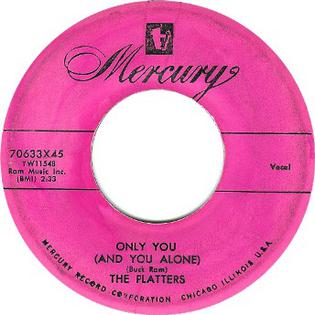
"Only You (And You Alone)" (often shortened to "Only You") is a pop song composed by Buck Ram. It was originally recorded by The Platters with lead vocals by Tony Williams in 1955.
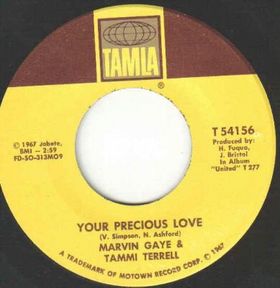
"Your Precious Love" is a popular song that was a 1967 hit for Motown singers Marvin Gaye and Tammi Terrell. The song was written by Nickolas Ashford and Valerie Simpson, and produced by Harvey Fuqua and Johnny Bristol. The doo-wop styled recording features background vocals by Fuqua, Gaye, Terrell and Bristol, and instrumentals by The Funk Brothers with the Detroit Symphony Orchestra. The song peaked at #5 on Billboard Pop Singles chart, #2 on Billboard's R&B Singles chart, and the top 40 on Billboard's Easy Listening survey. The song was later sampled by Gerald Levert on the song, "Your Smile", on his 2002 album, The G Spot.

Roger Troutman, also known as Roger, was an American singer, songwriter, record producer, multi-instrumentalist and the founder of the band Zapp who helped spearhead the funk movement and heavily influenced West Coast hip hop due to the scene's heavy sampling of his music over the years. Troutman was well known for his use of the talk box, a device that is connected to an instrument to create different vocal effects. Roger used a custom-made talkbox—the Electro Harmonix "Golden Throat"—through a Moog Minimoog and later in his career a Yamaha DX100 FM synthesizer. As both band leader of Zapp and in his subsequent solo releases, he scored a bevy of funk and R&B hits throughout the 1980s and regularly collaborated with hip hop artists in the 1990s.
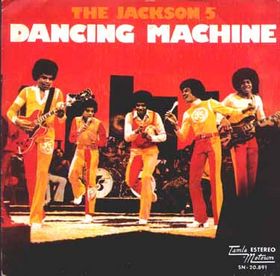
"Dancing Machine" is a song recorded by American R&B outfit the Jackson 5, and was the title track of their ninth studio album. The song was originally recorded for the group's 1973 album G.I.T.: Get It Together and was released as a remix for a response to the success of the single.
The Persuaders are a New York City-based R&B vocal group best known for their gold hit single in the 1970s, "Thin Line Between Love and Hate". It sold over a million copies, topping the Billboard R&B chart, and was certified gold by the Recording Industry Association of America on October 29, 1971.

"Family Affair" is a 1971 number-one hit single recorded by Sly and the Family Stone for the Epic Records label. Their first new material since the double A-sided single "Thank You "/ "Everybody Is a Star" nearly two years prior, "Family Affair" became the third and final number-one pop single for the band. In 2021, Rolling Stone magazine ranked the song 57th on their list of the 500 Greatest Songs of All Time. The cover version by John Legend, Joss Stone, and Van Hunt, won the Grammy Award for Best R&B Performance by a Duo or Group with Vocals at 49th Annual Grammy Awards.
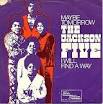
"Maybe Tomorrow" is a hit single recorded by American soul family quintet the Jackson 5, in 1971. "Maybe Tomorrow" was included on the Jackson 5's album of the same title, and was also featured on Goin' Back to Indiana. The song was released again in 2009 via a Carl Sturken and Evan Rogers' remix, with an orchestral arrangement by Rob Mounsey, from a compilation album The Remix Suite.

"Abraham, Martin and John" is a 1968 song written by Dick Holler. It was first recorded by Dion, in a version that was a substantial North American chart hit in 1968–1969. Near-simultaneous cover versions by Smokey Robinson and the Miracles and Moms Mabley also charted in the U.S. in 1969, and a version that same year by Marvin Gaye became the hit version in the UK. It was also a hit as part of a medley for Tom Clay in 1971, and has subsequently been recorded by many other artists.

"Until You Come Back to Me (That's What I'm Gonna Do)" is a song written by Morris Broadnax, Clarence Paul, and Stevie Wonder. The song was originally recorded by Stevie Wonder in 1967, but his version was not released as a single and did not appear on an album until 1977's anthology Looking Back. The best-known version of this song is the 1973 release by Aretha Franklin, who had a million-selling top 10 hit on Billboard charts. The song reached No. 1 on the R&B chart and No. 3 on the Hot 100 chart in 1974. It became an RIAA Gold record.

"Yes, I'm Ready" a song by Barbara Mason from her album Yes, I'm Ready (1965). It has been covered by numerous artists, and was a hit single for Teri DeSario and K.C. when they recorded a duet version in 1980.
"Don't Knock My Love" is a hit song performed by R&B singer Wilson Pickett and written by Pickett with Brad Shapiro. Released in the spring of 1971 from the album of the same title, it spent a week at number-one on the Billboard Best Selling Soul Singles Chart and peaked at #13 on the Billboard Hot 100 Singles Chart. The song, which was produced under a funk tempo was Pickett's last number-one single and one of his last hits for Atlantic Records.
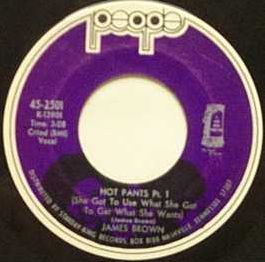
"Hot Pants " is a funk song by James Brown. Brown recorded the song in 1971 and released it that year as a three-part single on his People Records label, which was then distributed by his primary label King. It was a number-one R&B hit and reached number fifteen on the Billboard Hot 100 pop chart in the U.S. along with reaching number ten on the Cashbox magazine charts. "Hot Pants" was Brown's final release under King's purview before he moved to Polydor Records. The song's lyrics are an ode to the captivating power of the title garment, which members of the band first saw on their 1970 European tour.

"I'll Be Around" is a song recorded by the American R&B vocal group The Spinners. It was co-written by Thom Bell and Phil Hurtt and produced by Bell.

"Wake Up Everybody" is an R&B song written by John Whitehead, Gene McFadden and Victor Carstarphen.

"All This Love" is a single by DeBarge, released on October 17, 1982. The song was released as the third and final single from their second studio album of the same title on the Gordy label. The single would help DeBarge rise to R&B stardom. A cover version of the song was recorded by Patti LaBelle on her 1994 gold album Gems. A video for her version was also filmed.
"Call Me" is a song written and recorded by American singer Aretha Franklin. The song was co-produced by Jerry Wexler, Tom Dowd and Arif Mardin.
"Some Guys Have All the Luck" is a song written by Jeff Fortgang, which has been a Top 40 hit on the Billboard Hot 100 twice, first by The Persuaders in 1973 reaching No. 39, then by Rod Stewart in 1984 where it hit No. 10 in the U.S. and No. 32 on the Adult Contemporary chart.

"When You're Young and in Love" is a song composed by Van McCoy which first became a Top 40 hit single for the Marvelettes in 1967: a remake by the Flying Pickets would reach the UK Top Ten in 1984.

"Hi-Jack" is a 1974 r&b and funk disco based song written by Spanish musician Fernando Arbex and originally recorded by his group Barrabás for their album ¡Soltad a Barrabás!. While their version of the song was a huge success in their native Spain, going all the way to Number one over there, the song flopped in America, stalling at just number No. 104 on the Bubbling Under the Billboard Hot 100 Charts in July 1975. It was later a hit single for jazz flautist Herbie Mann.
"Funny How Time Slips Away" is a song written by Willie Nelson and first recorded by country singer Billy Walker. Walker's version was issued as single by Columbia Records in June 1961 and peaked at number 23 on the Hot C&W Sides chart.
